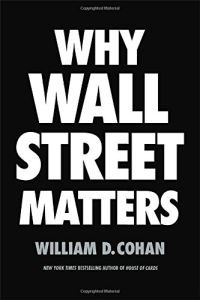Join getAbstract to access the summary!

Join getAbstract to access the summary!
William D. Cohan
Why Wall Street Matters
Random House, 2017
What's inside?
The world needs a strong Wall Street, not a demonized one.
Recommendation
This short, easy-to-read book argues for a simple concept: Improving the incentives of those who work on Wall Street will be more effective in preventing financial crises than tightening regulations. Drawing on history to make his case, business journalist William D. Cohan urges readers to appreciate Wall Street – which he acknowledges is not so easy to do after the 2008 debacle – and its valuable role in allocating capital. Cohan could have gone into more detail about how Wall Street firms fund businesses that improve the lives of ordinary people. Nonetheless, astute readers will find his central points intriguing and perhaps useful in countering the growing anti-capitalist narratives of the discontented. The question is, of course, whether Cohan is right or wrong: Do financial innovations have the merit he sees in them or could they be the road to risk and ruin?
Summary
About the Author
William D. Cohan, formerly a Wall Street banker, is a financial journalist and the author of the bestselling books Money and Power, House of Cards and The Last Tycoons.


















Comment on this summary